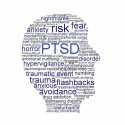Participants: County Alcohol treatment program works
Todd Hunter has been sober for two-and-a-half years.
The 47-year-old Appleton man credits his sobriety in part to an alcohol program that will soon be available to convicted drunk drivers across the state.
After Hunter was convicted of his third drunken driving offense in 2007, his attorney suggested he participate in the Safe Streets Treatment Option Program, known as SSTOP. While he initially was leaning towards serving jail time, Hunter said he realized he had a problem with alcohol and that the yearlong program might help him address it.
“Honestly, sitting in jail like I did with my second drunk driving, I would have gotten out again and drank,” Hunter said. “My addiction and disease would have been sitting there, waiting.”
Hunter is one of 192 people who have successfully completed SSTOP, the alcohol component of Winnebago County’s Safe Streets Initiative, since it began three years ago. Another 150 people are currently going through the program.
The program will now be expanded statewide after Gov. Jim Doyle signed a drunken driving bill Tuesday. The changes take effect July 1.
SSTOP, which was launched as a pilot program in December 2006, allows OWI offenders who are convicted of their second or third drunken-driving offense to participate in a probation and treatment program in exchange for a reduced jail sentence.
Under current law, judges outside of Winnebago County have not been allowed to sentence drunk drivers to probation until the fourth offense.
Having that treatment and probation option available to second and third time offenders is a step towards addressing the alcohol issue that exists in Wisconsin, said Michael Olig, the Winnebago County SSTOP case manager.
“It’s a beginning and is a program that addresses some gaps in our current laws that don’t allow for probation for second and third OWIs,” Olig said. “It’s a positive thing that it’s going to be expanded.”
Participants in the program are under the supervision of Olig for a year and must remain sober while in the program. Random testing enforces the sobriety requirement.
In addition, participants must undergo an alcohol assessment, complete a driver’s safety program, which allows them to have an occupational driver’s license or get their license reinstated; and perform community service, Olig said. They also serve a reduced amount of time in jail, attend a drunken driving victim impact panel and pay fines associated with the conviction.
If participants do not comply with the rules, they can be sent back to the court and ordered to serve additional jail time.
So far the program seems to be working at addressing alcohol addiction while saving the county money.
While there are no studies that identify the recidivism rate for drunk drivers who will re-offend in Wisconsin, Olig said the recidivism rate for people who have successfully completed SSTOP in the last three years is about 10 percent.
With participants serving less time in jail, Winnebago County has also seen a decrease in spending.
Since the program’s launch, Winnebago County Circuit Court Judge Scott Woldt said the $713,000 has been saved based on the number of days offenders would have otherwise spent in jail under a traditional sentence.
Mark Zimmerman is currently going through the program and is expected to complete it in July 2010.
The Oshkosh man said the 90 hours of community service he was ordered to perform and the regular meetings with Olig have helped him address his alcohol issues and stay sober. He said the mix of jail and treatment helped him get his life straightened out.
“It has worked for me,” Zimmerman said. “It has kept me sober and kept me behind the wheel.
source: Oshkosh Northwestern

